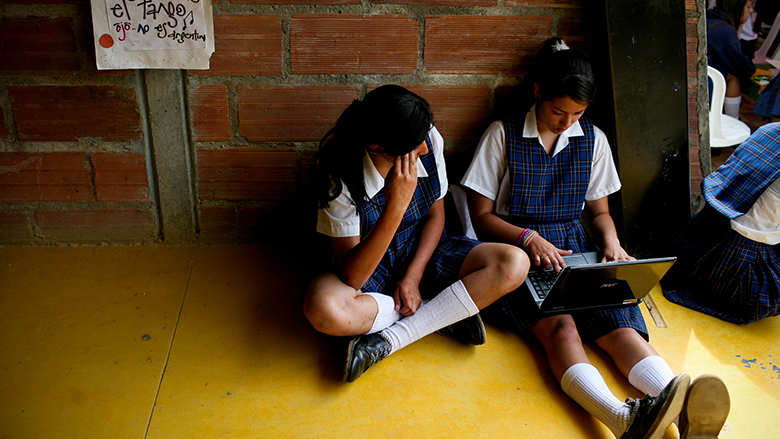Teachers - A World Bank perspective
Posted by Janice Scheckter on 15 June 2021, 13:20 SAST

Teachers are the single most important factor affecting how much students learn. More than just conduits of information, they equip children with the tools to analyze, problem solve, and effectively use information.
There are close to 85 million teachers worldwide: 9.4 million in pre-primary; 30.3 million in the primary; 18.1 in lower secondary; 14.0 in upper secondary; and 12.5 in tertiary education.
By 2030, an additional 68.8 million teachers will need to be recruited just for primary and secondary: 20 million are required to expand access to primary and secondary school and 49 million are needed to replace those who leave the workforce. In addition, the childcare workforce needs to expand by 32 million globally to address the childcare gap.
Research shows that the quality of teachers is a major determinant of children's learning and well-being. Going from a poor-performing teacher to a great teacher can increase student learning by multiple years of schooling. Great teachers also have a substantial impact on the well-being of students throughout their lives, affecting not only their academic achievement but also other long-term social and labour outcomes.
Yet, a large share of children do not have access to high-quality teachers. A survey in six countries in Sub-Saharan Africa showed three worrying facts.
-
First, high teacher absence leads to students receiving only two hours and fifty minutes of teaching per day, just over half the scheduled time. Teachers being absent is the clearest symptom of a lack of understanding of the importance of the teacher-student interaction for learning.
-
Second, 84 percent of grade 4 teachers have not reached the minimum level of mastery of the curriculum they teach.
-
Third, less than 1 in 10 teachers exhibit good teaching practices, such as regularly checking for students’ understanding and providing feedback.
Studies in Afghanistan, India, Pakistan, Lao PDR, Peru, and Tanzania show similar quality issues in different settings.
Poor teaching is not the fault of the teachers, but the result of system-level policies that do not appropriately recruit, prepare, support, manage and motivate teachers. A handful of countries, such as Finland, Japan, and Singapore, boast a cadre of successful teachers. In most other countries, teacher policies are either ineffective or lack internal consistency. Entry into teacher preparation programs might lack selectivity, and teacher entry-level qualifications might be set much lower than other professions. Good teacher performance might not be recognized or rewarded. Teachers hiring or on promotion might be stained by politics or clientelism. Unprepared and poorly trained teachers might be expected to teach a complex curriculum, which even they have a weak grasp on.
Covid-19 has deepened the crisis. The pandemic has challenged education systems to ensure learning continuity, substantially increasing the demands placed on teachers. Education systems, more than ever, require effective teachers that facilitate and support learning instead of delivering content; that use a combination of in-person and digital methods to deliver lessons; that foster creative thinking, communication, and collaboration; and that instil a love of learning, how to persevere, and have self-control.
As schools gradually reopen, teachers will have the challenge of rapidly assessing students’ knowledge to identify learning gaps and adapt their teaching to the level of each student. Further, they will need to provide psychosocial support and manage their own stress, as students will return to school after a very stressful time. It is very difficult and demanding to be a good teacher, especially now.
Source: https://www.worldbank.org/en/topic/teachers

